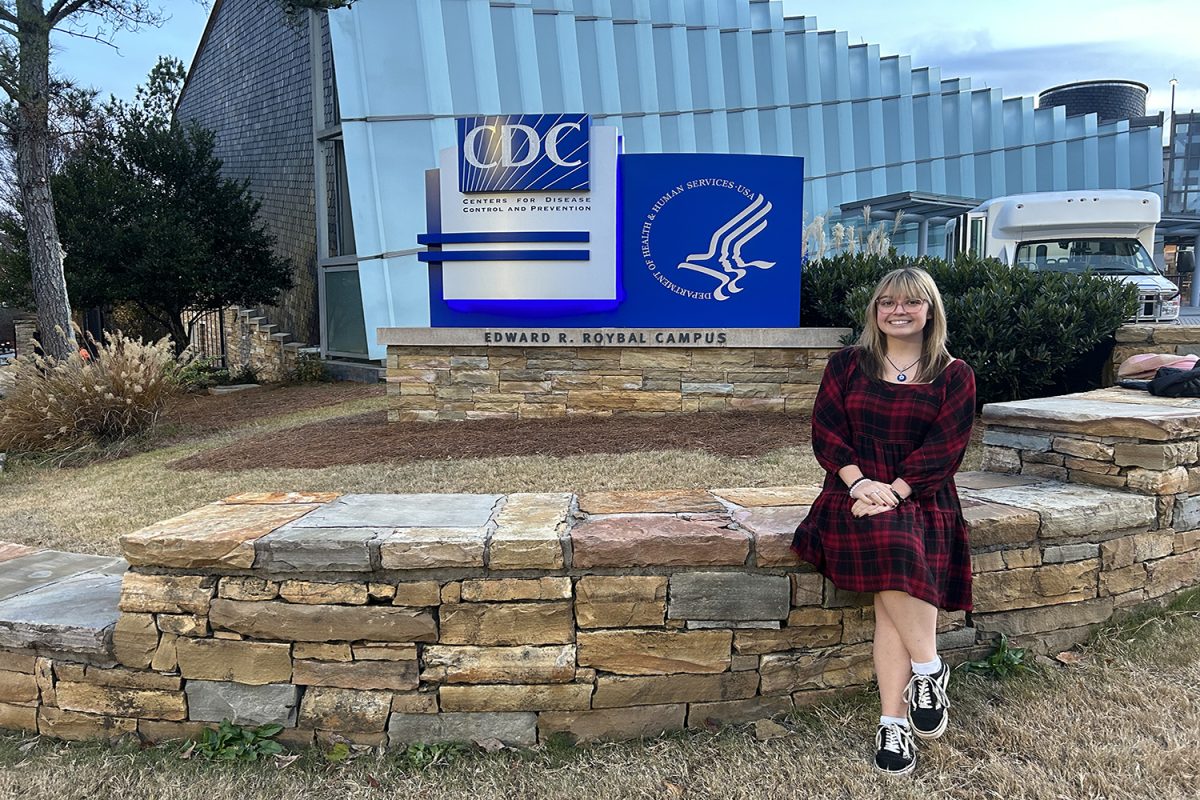Around 750 employees for the Centers for Disease Control and Prevention, or CDC, have been laid off in recent weeks, according to reports from NPR. The CDC is among a multitude of federal agencies losing employees due to efforts from President Donald Trump’s administration.
The plans to terminate large numbers of probationary federal employees are being guided by the new Department of Government Efficiency, or DOGE, in an attempt to reduce wasteful spending within the government, and those efforts are being felt in Iowa City.
Iowa City resident Brianna McNulty is among the thousands of employees who lost their jobs in recent weeks.
McNulty said the news came as a shock when she and many others from the same CDC program received termination letters on Feb. 14 and 15, which she calls the “Valentine’s Day Massacre.”
Her termination letter stated she lacked the necessary skills, knowledge, and ability for her current position and that she did not have adequate performance.
“All of us were just confused,” she said. “We actually just did our performance reviews recently, and all of us got really good scores. I’ve never had my host site tell me I was underperforming, and I’ve never had my CDC supervisor tell me I was underperforming.”
McNulty worked for the CDC as a part of their Public Health Associate Program, or PHAP, where workers are assigned to a host site anywhere across the country.
Ending up at the Iowa Cancer Consortium in Coralville, Iowa, McNulty was the outreach coordinator, additionally working in the cancer screening and early detection, HPV vaccine, and research and clinical trial work groups. The consortium is the center of Iowa’s comprehensive cancer control coalition, working to reduce the burden of cancer throughout the state.
Kelly Wells Sittig, executive director of the Iowa Cancer Consortium, said she was equally as confused to hear about McNulty’s termination. The consortium did not receive any notice of her firing until Feb. 19, five days after McNulty received her termination letter.
Sittig said the email the consortium received indicated a conflicting reason for the firing.
“The email that we received as an organization after the fact did indicate that the reason for the termination was due to the presidential administration’s interest in reducing the workforce,” she said.
RELATED: Iowa politicians react to Trump’s address to Congress
Former coworker of McNulty and member of the PHAP program Caroline Powell said it was clear McNulty was not fired due to her performance levels.
“Brianna is truly one of the most hardworking and driven people I know, and I learned so much from her just being at the consortium. She showed me the [termination] letter, and it did not reflect what I knew about her and saw working with her.”
McNulty’s termination, along with that of federal employees across the state, comes at a less-than-ideal time considering Iowa’s need for cancer research.
The recently released 2025 report from the Iowa Cancer Registry showed Iowa has the second-highest age-adjusted rate of new cancer diagnosis in the country, one of only two states with a rising rate.
Sittig cited the rising cancer rates combined with the low-workforce problem in the public health sector of the state as the reason why McNulty’s loss is felt so strongly.
“The loss of her job, really, to me represents a backwards movement, the opposite of what we need to have happening,” she said. “We need to be welcoming young folks and encouraging them to come to Iowa to work in health care and public health and, specifically, cancer control.”
Powell elaborated, saying a team effort is essential for researching and fighting the disease.
“It doesn’t take one person and one lived experience, and that’s something I think that Bri brought to the team, that I brought to the team, all of these people coming in to work on cancer,” she said. “I do think that those multiple perspectives are being lost.”
She continued to explain the full effect of these terminations will be felt for some time.
“The firing of these early career employees, you know, it has a ripple effect. It’s not just their host sites being affected, it’s the CDC losing future workers, too, because we just don’t know what the state of work is going to look like if these folks want to come back to federal public health.”
The next steps for the PHAP program are unknown, as the next cohort of associates has been canceled. Originally supposed to start in January, questions surrounding federal funding and hiring freezes have already caused multiple delays in the program.
McNulty called the directives dangerous, especially due to crises in public health such as rising cancer rates and outbreaks of measles and tuberculosis.
“It’s just a lot of very highly intelligent and highly educated, motivated people [in the program], and it’s preventing them from working in the states that need the most help,” she said.



